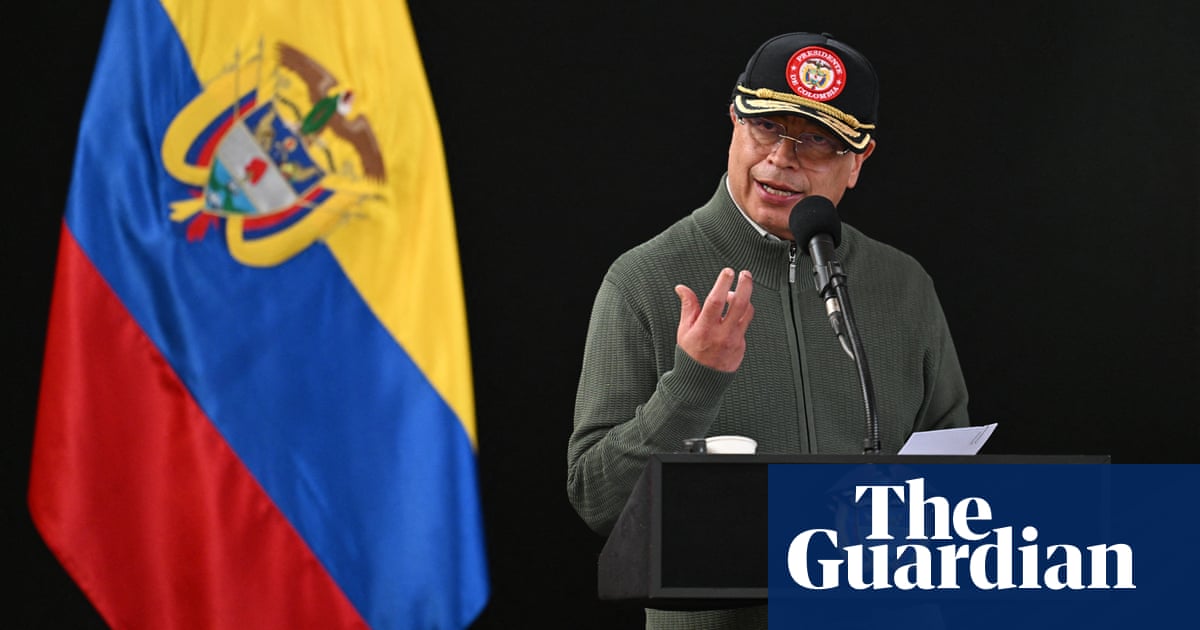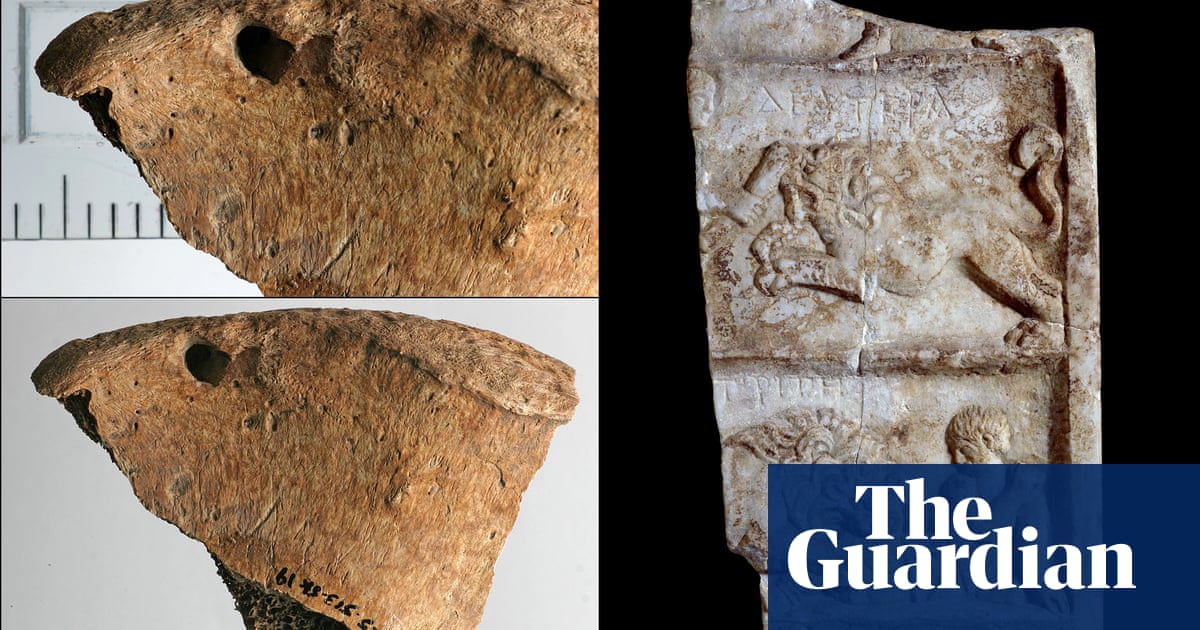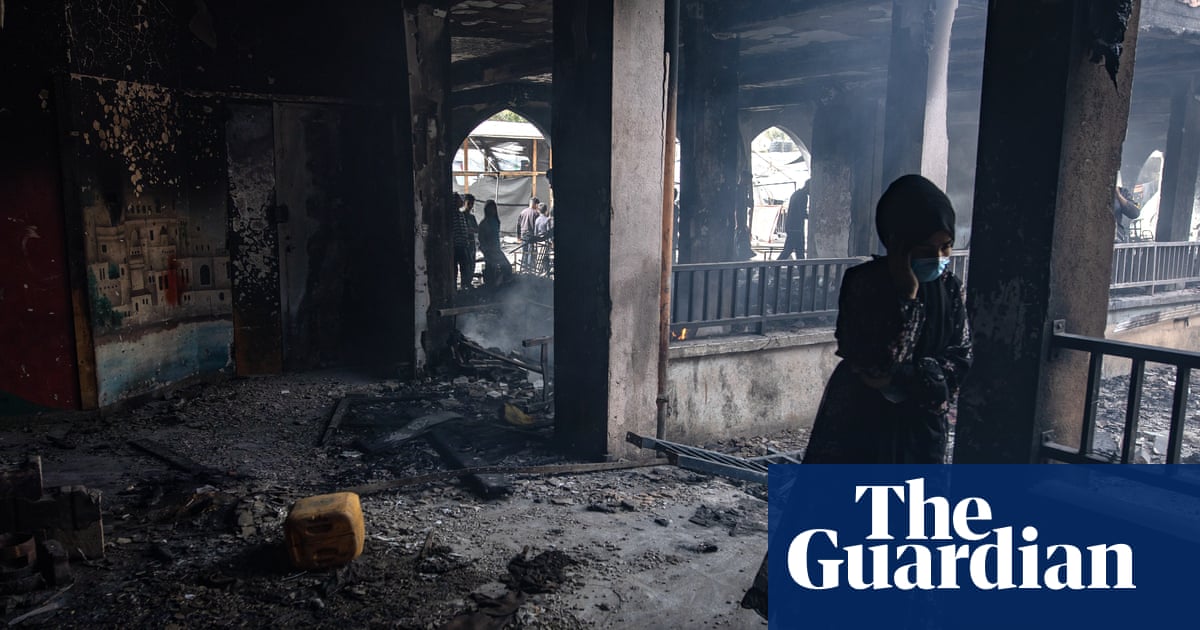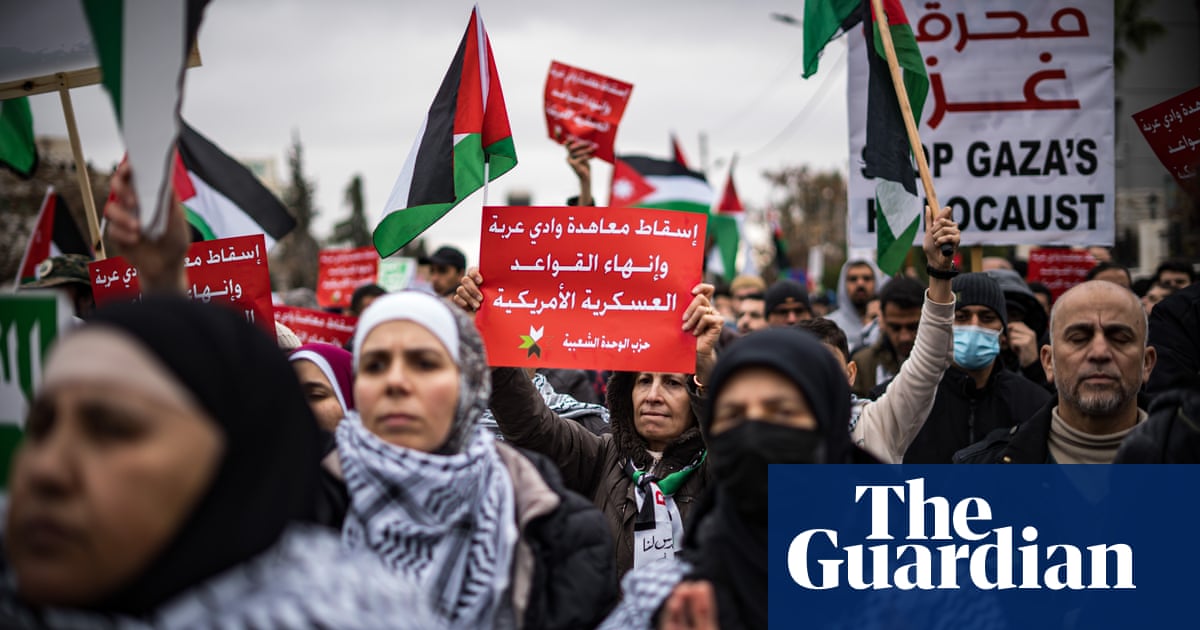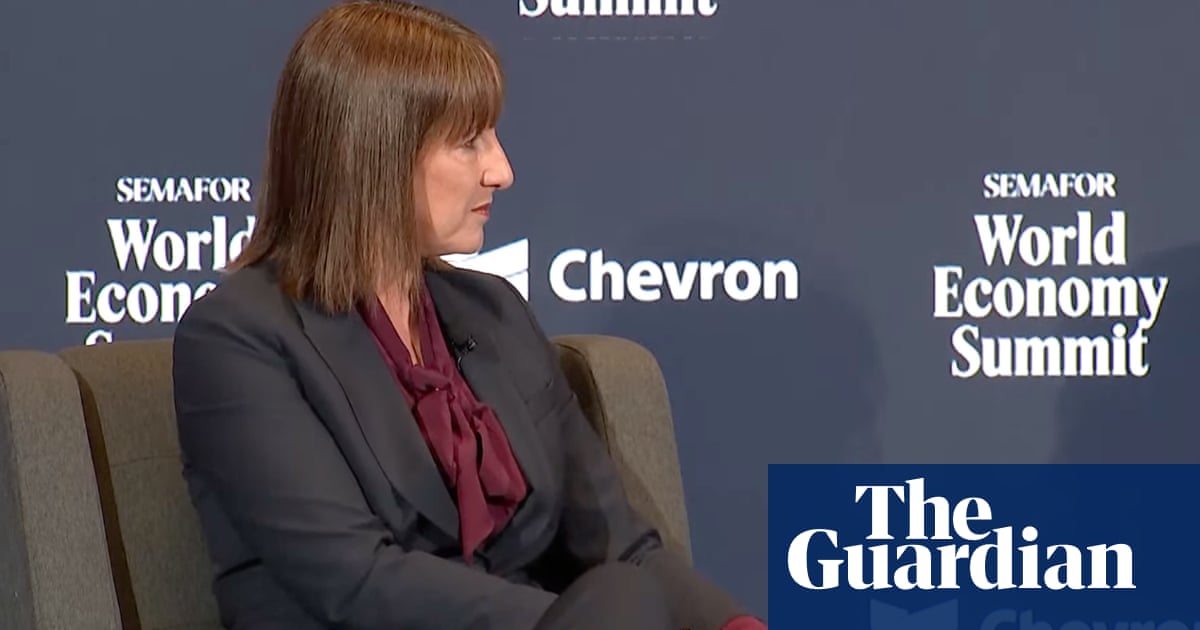Donald Trump has repeated his suggestion that large numbers of Palestinians should leave Gaza for Egypt or Jordan, despite widespread opposition to the proposal from Palestinian leadership, the UN and US allies in the region.
Speaking to reporters onboard Air Force One on Monday night, the US president was asked about his comments over the weekend about “cleaning out” the Gaza Strip either “temporarily or long-term”. Trump reiterated he would “like to get [Palestinians from Gaza] living in an area where they can live without disruption and revolution and violence so much”.
The remarks, apparently at odds with existing US policy and international law, have been widely rejected by the Arab world as a potentially fatal blow to a two-state solution to the Israeli-Palestinian conflict, but were embraced by Israel’s rightwing.
Trump also said he was due to meet his Israeli counterpart, Benjamin Netanyahu, “soon”, amid speculation the longtime Israeli premier will be the first foreign leader to visit the White House during Trump’s second term.
“When you look at the Gaza Strip, it’s been hell for so many years,” Trump said on Monday.
“There have been various civilisations on that strip. It didn’t start here. It started thousands of years before, and there’s always been violence associated with it. You could get people living in areas that are a lot safer and maybe a lot better and maybe a lot more comfortable.”
Trump said he had spoken to the Egyptian president, Abdel-Fattah el-Sisi, and Jordan’s King Abdullah on Sunday, and insisted that both leaders would agree to the plan. Abdullah also spoke on Monday with Trump’s secretary of state, Marco Rubio, but the issue was not mentioned in a state department statement on the call.
“I wish [Sisi] would take some. We helped them a lot, and I’m sure he’d help us. He’s a friend of mine. He’s in … a rough neighbourhood. But I think he would do it, and I think the king of Jordan would do it too,” Trump said.
Both Amman and Cairo have been adamant so far that Trump’s suggestion is a non-starter.
For Palestinians, there is little faith in the idea of temporary relocation to allow for reconstruction, given a history of repeated displacements since the creation of Israel in 1948.
Fifteen months of war have levelled 70% of Gaza’s infrastructure and left the Palestinian territory’s 2.3 million population in the depths of a devastating humanitarian crisis. More than 47,000 people were killed before a ceasefire went into effect earlier this month, and about 90% of residents have been displaced from their homes, some multiple times. About 1,200 Israelis and foreigners were killed in Hamas’s 7 October 2023 attack that triggered the war, and another 250 taken hostage.
On Tuesday, people continued to flood back to northern Gaza after Israel on Monday opened military checkpoints that had divided the strip for more than a year, ending a forced exile that many had already feared could become permanent. About 300,000 people travelled north through the Netzarim corridor on Monday alone, by foot or in cars that were screened by Egyptian contractors with the help of a US private security firm.
Mediators have begun preliminary work on the second stage of ceasefire negotiations, which is supposed to go into effect in early March, during which Israel is expected to completely withdraw from Gaza, and Hamas is supposed to disarm.
The Times of Israel on Tuesday quoted an anonymous security cabinet minister as saying that Trump’s statements on resettling Palestinians outside Gaza had most likely been “partially designed to help Netanyahu hang on to support from far-right allies who have destabilised his coalition” in protest against the hostage release and ceasefire deal.
At least 500 trucks of aid a day are now supposed to enter the besieged Palestinian territory, the minimum aid agencies say is needed, and up from an average of 72 a day in December. However, humanitarian efforts have been complicated by an Israeli parliament decision to ban the UN relief and works agency for Palestine refugees (Unrwa) from operating on Israeli soil, which goes into effect on Thursday.
UN officials say the aid effort in Gaza is “completely dependent” on Unrwa staff, facilities and logistical capabilities. Another 900,000 Palestinians in the West Bank rely on the organisation for basic services, which the semi-autonomous Palestinian Authority does not have the capacity to take over, leading to fears it could collapse altogether.

.png) 2 months ago
22
2 months ago
22
